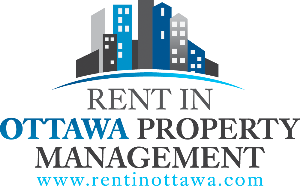
Brand New Townhomes for Rent in Barrhaven
November 26, 2025
This article highlights brand new townhomes for rent in Barrhaven, one of Ottawa’s fast...
Many individuals start their journey in real estate by becoming part-time landlords. Managing rental properties on the side can be a lucrative way to increase income and monitor the growth of their investment portfolio.
However, those who have aspirations of becoming full-time, professional landlords may find themselves eager to leap into it.
To guarantee a seamless transition in terms of finances and logistics, this change requires careful planning and strategy.
We'll give you the essential advice you need in this post to make the move from a part-time to full-time landlord, easy and successful. Keep reading this article to learn more!
Not everyone is suited to be a full-time landlord and real estate investor. However, many are drawn to it because of the benefits, such as:
Having a full-time rental property allows you to grow your portfolio considerably faster.
Full-time landlords have a great deal more time to devote to finding, purchasing, and managing new rental properties because they are not constrained by the demands of a traditional job. Over time, larger portfolios result in higher net worth and cash flow.

Landlords who work full-time are better equipped to provide their tenants with more services. Efficient tenant turnover and renewals are facilitated by elements such as prompt maintenance request responses and an accessible landlord.
Maintaining your property and ensuring tenant satisfaction lead to fewer vacancies and improved cash flow for the landlord.
The tax benefits of making full-time real estate investments should also not be overlooked. There are several benefits associated with self-employment in addition to all the deductions and depreciation related to property.
Making the transition to full-time landlord is a big step that requires careful planning and preparation. While it seems intimidating, becoming your boss through real estate investment can also be highly rewarding. The key is managing the transition strategically. Here are some tips to help make the process smoother:
Before making the move, it is imperative to have six to twelve months' worth of living expenses saved up. Cash flow in the early going will be less steady and predictable with a smaller portfolio than with more units. Large, unforeseen repair costs can have a long-term negative effect on cash flow.
But new full-time landlords will be able to weather the early ups and downs while concentrating on expanding their business if they have a solid emergency fund that covers at least six months' worth of living expenses. To minimize risks during the transition, you need to have enough capital.

Landlords can gain experience in smaller-scale property management by acquiring rental properties gradually on the side before making the full transition.
They can get experience under their belt by beginning with just one or two units. It's crucial because, as a full-time landlord, having four to ten rental units will guarantee more consistent cash flow from the beginning.
One vacancy could have a big impact on cash flow with just one rental. Greater scalability and a decreased chance of multiple vacancies are advantages of larger portfolios. Expanding your portfolio before focusing on a single property lowers the risk of the full-time transition and demonstrates your abilities as a landlord.
This is crucial for attracting tenants and generating income. Develop a strategic, multi-pronged approach involving an online presence on real estate websites, writing a good property listing for competitive pricing, and high-quality professional photos showcasing features.
Research the rental rates in your area and strive to set your rates at or below the market average. Advertising your property with an online and visual marketing strategy will help rent properties quickly and maximize occupancy.
Seek out full-time, seasoned landlords who will guide and advise you along the way. You can quicken your learning curve by utilizing their connections and wisdom. Navigating in real estate alone makes it hard to succeed.

You can overcome obstacles, come up with innovative solutions to problems, and even get access to opportunities and deals that you otherwise wouldn't be able to find on your own with the assistance of mentors.
Creating connections with other investors via multi-family investment clubs or local real estate meet-up groups is an excellent method to strengthen your network of support.
After you start working full-time, focus all of your efforts on buying more properties so that the company can grow fast and fully support you. To free up time for growth, assign daily operations to a property management company.
To accumulate 12 properties in three years—usually sufficient to generate a respectable income—aim to add one property every fiscal quarter. The objective is steady growth so that, in five to ten years, your portfolio will equal your salary, allowing you to retire comfortably.
Conclusion
As your real estate portfolio grows, relying on a competent property management company becomes essential.Rent in Ottawa Property Management is more than just a real estate firm.
We handle maintenance requests, tenant concerns, and daily operations, freeing you from tedious tasks. Partnering with Rent in Ottawa's experienced team can help reduce stress and provide more time for finding new investment opportunities.
November 26, 2025
This article highlights brand new townhomes for rent in Barrhaven, one of Ottawa’s fast...
November 18, 2025
Ottawa Landlord Checklist for 2025
October 02, 2025
September 03, 2025
August 01, 2025
June 18, 2025
